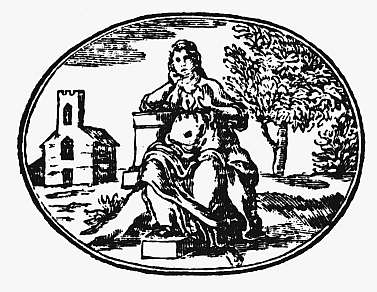We see a lot of people here with, either currently or in the past, depression. It is often suggested and believed that inappropriate thyroid hormone levels can cause depression. This might well be true - but this paper suggests that elevated antibodies might be a cause.
Mind, give current attitudes towards antibody testing, it might make next to no difference to anyone's treatment.
Neurosci Biobehav Rev. 2014 Mar;40:62-79. doi: 10.1016/j.neubiorev.2014.01.008. Epub 2014 Jan 27.
Autoantibodies and depression: evidence for a causal link?
Iseme RA1, McEvoy M2, Kelly B3, Agnew L4, Attia J5, Walker FR6.
Author information
1Centre for Clinical Epidemiology & Biostatistics, School of Medicine & Public Health, The University of Newcastle, Callaghan, NSW, Australia. Electronic address: c3054392@uon.edu.au.
2Centre for Clinical Epidemiology & Biostatistics, School of Medicine & Public Health, The University of Newcastle, Callaghan, NSW, Australia; Hunter Medical Research Institute, New Lambton Heights, NSW, Australia; Level 3, Hunter Medical Research Institute Building, Kookaburra Circuit, New Lambton Heights, NSW 2305, Australia. Electronic address: Mark.McEvoy@newcastle.edu.au.
3Centre for Brain and Mental Health Research, The University of Newcastle, Callaghan, NSW, Australia; 5010, Level 5, McAuley Building, Mater Hospital, Edith Street, Waratah, NSW 2298, Australia. Electronic address: Brian.Kelly@newcastle.edu.au.
4School of Science and Technology, University of New England, Armidale, NSW, Australia; McClymont Building (W34) 353, University of New England, Armidale, NSW 2351, Australia. Electronic address: lagnew@une.edu.au.
5Centre for Clinical Epidemiology & Biostatistics, School of Medicine & Public Health, The University of Newcastle, Callaghan, NSW, Australia; Hunter Medical Research Institute, New Lambton Heights, NSW, Australia; Department of General Medicine, John Hunter Hospital, New Lambton Heights, NSW, Australia; 3014, Hunter Medical Research Institute Building, Kookaburra Circuit, New Lambton Heights, NSW 2305, Australia. Electronic address: John.Attia@newcastle.edu.au.
6Laboratory of Affective Neuroscience, The University of Newcastle, Callaghan, NSW, Australia; University of Newcastle, Medical Sciences MS413, University Drive, Callaghan, NSW 2308, Australia. Electronic address: Rohan.Walker@newcastle.edu.au.
Abstract
Depression is a leading contributor to the global burden of diseases. Despite advances in research, challenges still exist in managing this disorder. Sufferers of autoimmune diseases are often observed to suffer from depression more often than healthy individuals, an association that cannot be completely accounted for by the impact of the disease on the individual. An association between autoimmunity and depressive symptoms also appears to exist in populations with subclinical symptoms. Moreover, researchers have successfully developed murine models illustrating the ability of autoantibodies to induce depressive-like symptoms. This paper will provide an overview of the association between autoantibodies and occurrence of depressive symptoms. Though current evidence appears to support a role for autoantibodies in the pathogenesis of depression, the majority of studies have examined this relationship cross-sectionally, therefore failing to establish a temporal association. Nonetheless, this novel theory meshes with older and newer neurochemical theories of depression. A better understanding of the immuno-pathogenesis underlying depression presents opportunities for more targeted treatment approaches and more timely and appropriate measures of detection.
Copyright © 2014 Elsevier Ltd. All rights reserved.
KEYWORDS:
Anti 5-HT autoantibodies; Anti N-methyl-d-aspartate receptor autoantibodies; Anti endothelial cell autoantibodies; Anti ganglioside autoantibodies; Anti-P ribosomal autoantibodies; Anti-ds DNA autoantibodies; Anti-gliadin autoantibodies; Anti-nuclear autoantibodies; Anti-phospholipid autoantibodies; Anti-thyroid autoantibodies; Autoantibodies; Autoimmunity; Depression; Rheumatoid factor; Tissue transglutaminase autoantibodies
PMID:
24480318
[PubMed - indexed for MEDLINE]
Rod


